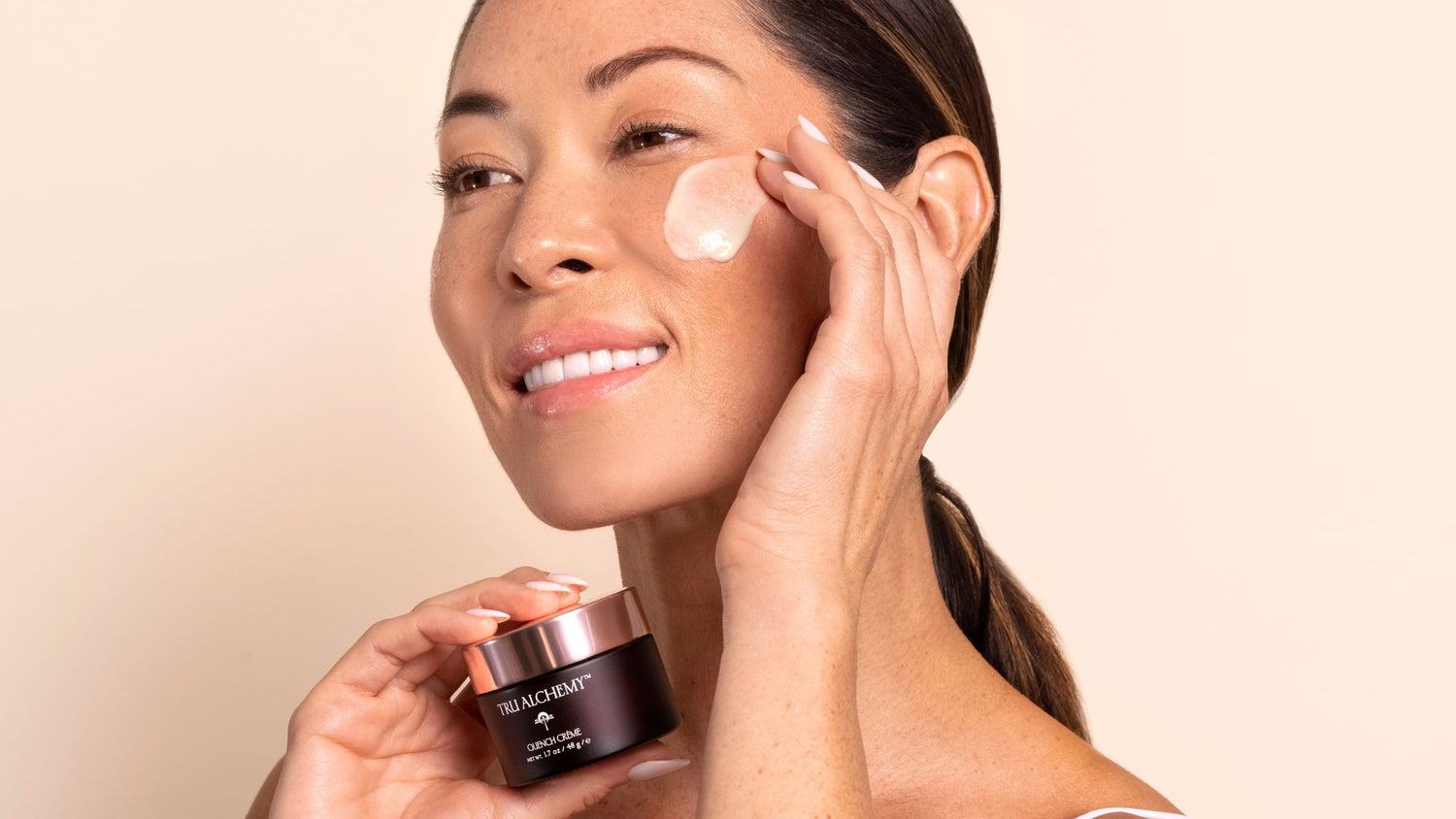
The Importance of Sunscreen
Curtis BradshawWhen we were young, sunblock was chalky white and was a chore to apply on a beachy summer day. Now, favored by dermatologists and aestheticians alike, new formulas have become a cornerstone of daily skincare regimens year-round.
However, the world of sun protection is vast, with so many formulations, textures, and SPF concentration levels. It’s become murkier to know what product and where is best. Luckily, we’re breaking the basics of sunscreen as your guide going into the sunny days ahead.
Why Sunscreen Is Important
Simply put, sunscreen acts as a shield and protects your skin from the sun. The sun produces two types of ultraviolet rays that can cause harm to the skin from overexposure. UVA is associated with premature aging of the skin, and UVB is associated with sunburns.
A broad-spectrum sunscreen will protect against both UVA and UVB rays. Make sure to look for “broad-spectrum” on American SPF labels or PA++++ on Asian sunscreen products for maximum sun protection.
Applying a daily broad-spectrum sunscreen reduces will help prevent the appearance of discoloration and dark spots, helping you maintain a smoother and more even skin tone.
What Does SPF Mean?
SPF stands for Sun Protection Factor. This number refers to the sunscreen’s ability to block the sun’s rays. For example, a sunscreen with SPF 30 will block 97% of the sun’s rays. It’s recommended to use at least SPF 30 for everyday activities like working indoors and running occasional errands.
For days with prolonged direct sun exposure like gardening, hiking, swimming, or even skiing, look for an SPF 40 or 50 that will give you a little bit more protection. This is also recommended for daily use if you have fair skin and light-colored hair and eyes.
How to Pick the Right Sunscreen
It’s always best to use the right formula for your needs. There are varying ingredients, applications, and purposes for different suncare. Here are a few ways to distinguish them.

Spray vs. Cream
Spray sunscreens can be easier to apply; however, the concern with a spray sunscreen is it’s hard to know if you have put enough on. A safer bet is to use creams and lotions for the face and body and sticks around the eyes and nose.
Mineral Sunblock vs. Chemical Sunscreen
Mineral sunscreens work like a physical shield to deflect the sun’s rays off the skin. They are great for most skin types, especially more dry or sensitive skin. However, they can occasionally leave a white cast, which can be bothersome for those looking for blendable sunblocks.
The active ingredients in a mineral sunblock are zinc oxide and/or titanium dioxide, which can have a thicker consistency. Mineral sunscreens are a better choice for protection against indoor blue light.
Chemical sunscreens, on the other hand, are typically thin and translucent and melt into the skin, which makes them more ideal for blending with makeup. Depending on the formula, they can also be better suited for sensitive skin.
Rather than deflect sunlight off the surface of the skin, chemical sunscreens work differently in that they absorb the sun like a sponge. Like magic, the chemical compounds below the skin’s surface turn the UV rays into heat that is then released by the skin.
Both types can be safe and effective, so try both and see how your skin feels. Just make sure you’re using it daily.
Tips for Using Sunscreen Correctly
Proper application is key to getting the best protection! For one, use more than you think you need. Most people don’t use enough sunscreen. You need about one ounce (a shot glass amount) to cover your whole body. Rather than applying in the sunlight, it’s better to apply prior to sun exposure for the best protection, as even incidental, direct sun can add up over time.
On that note, it's essential to reapply. Sunscreen only lasts for about two hours, so have a method to reapply on the go. For some activities like playing sports, it’s great to start the day with a mineral SPF cream, and then a spray can be handy for quick touch-ups. Don’t forget to apply your sunscreen on often missed areas like your ears, scalp, tops of feet, back of hands, and neck.
Most importantly, your skin will thank you for making your daily SPF a priority. If you’re dealing with the appearance of skin issues like hyperpigmentation or occasional redness, which the sun can exacerbate, it’s even more important. What experts say again and again is that antioxidants like vitamin C are the best friend to your morning SPF formula. They work hand in hand to protect your skin from everyday environmental stressors.

Try pairing your sunscreen with Tru Alchemy’s Glow Serum loaded with youth-boosting vitamin C, soothing niacinamide, and calming green tea extract for a burst of radiance.
When it comes to makeup with built-in SPF, the coverage is minimal at best. A good option is to try swapping your foundation or tinted moisturizer for a tinted mineral sunscreen that will even your skin tone and provide some coverage.
Finally, if you are less diligent on an overcast day, know that up to 80% of the sun’s rays can still pass through clouds, so this wellness and self-care habit should be maintained throughout the winter months.
Your Skin Is Your Best Protection
Your skin does everything it can to protect your body, so return the favor in kind by protecting it from the harsh elements! Just remember that even an SPF 70 can only do so much, so take cover in the shade and opt for loose, breathable long-sleeve clothing and wide-brimmed hats. Knowing how to protect and nurture your skin will allow you to shine, soak up some golden rays, and stay worry-free, truly illuminating your mind, body, and soul.



